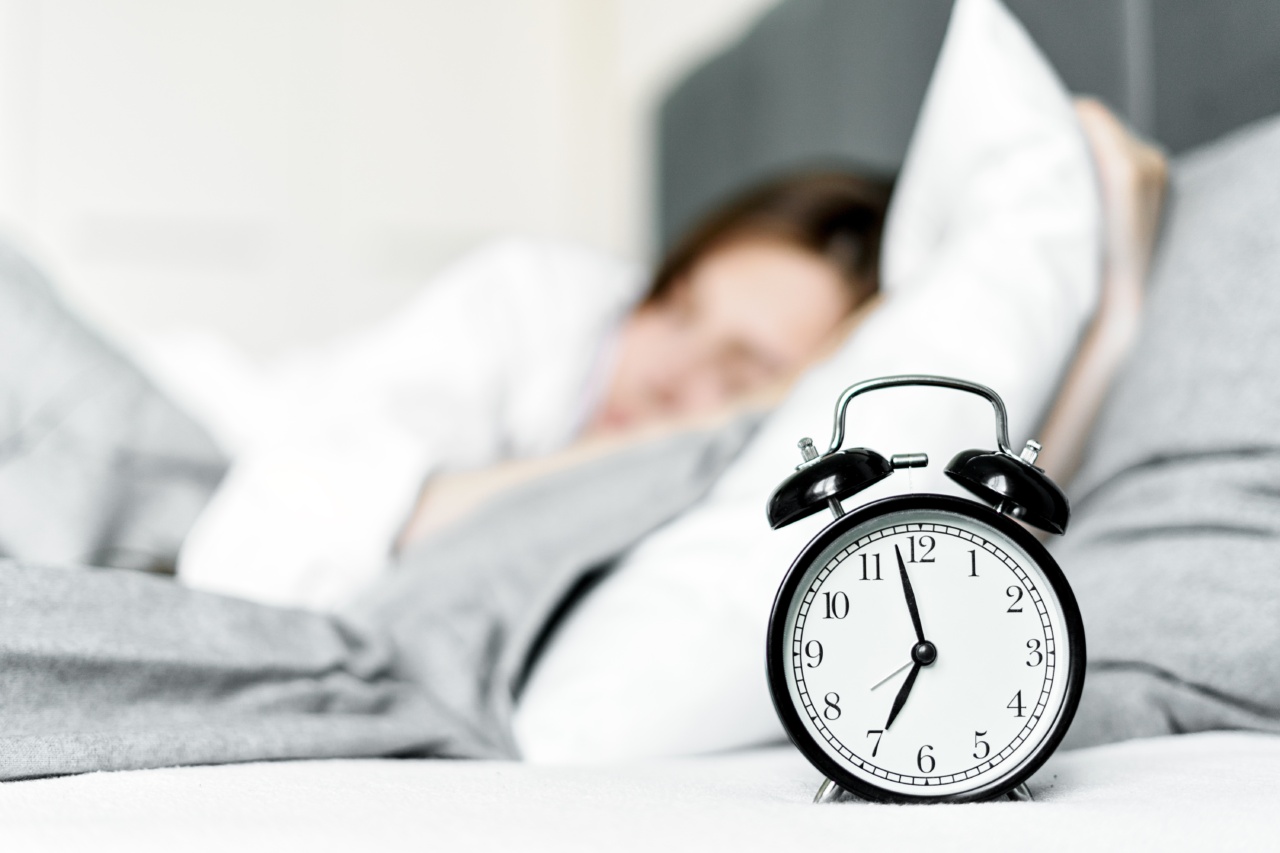Sleep is a fundamental biological need that is essential for our overall health and well-being. However, in today’s fast-paced and demanding world, many people prioritize other activities over getting enough sleep.
As a result, chronic sleep deprivation has become a widespread issue. While it may seem harmless to sacrifice a few hours of sleep for work or leisure activities, sleeping less than 6 hours per night can have serious consequences for both our physical and mental health.
The importance of sleep
Sleep plays a vital role in various aspects of our lives. It is during sleep that our body repairs and rejuvenates itself, ensuring proper functioning and optimal health. Here are some key reasons why sleep is crucial:.
1. Restoration and healing
During sleep, the body repairs damaged cells and tissues, reduces inflammation, and strengthens the immune system. Lack of sleep impairs these essential restorative processes, making us more susceptible to illnesses and slower recovery from injuries.
2. Cognitive function and memory
Adequate sleep is necessary for optimal cognitive function, including memory consolidation and problem-solving abilities.
Lack of sleep impairs attention, concentration, and decision-making skills, resulting in reduced productivity and decreased overall performance.
3. Emotional well-being
Sleep deficiency affects our emotional and psychological well-being. It can lead to increased irritability, mood swings, anxiety, and depression. Chronic sleep deprivation is also associated with a higher risk of developing mental health disorders.
4. Physical health risks
Getting less than 6 hours of sleep per night increases the risk of developing various chronic health conditions, including:.
– Obesity: Sleep deprivation disrupts the hormones responsible for regulating appetite, leading to increased cravings for unhealthy foods. It also affects the body’s metabolism, making it easier to gain weight.
– Cardiovascular diseases: Lack of sleep is associated with an increased risk of high blood pressure, heart disease, and stroke.
– Diabetes: Insufficient sleep can disrupt insulin production and glucose metabolism, increasing the risk of developing type 2 diabetes.
– Weakened immune system: Inadequate sleep weakens the immune system, making us more susceptible to infections, colds, and flu.
5. Impaired cognitive performance
One of the most noticeable effects of sleep deprivation is impaired cognitive performance. Lack of sleep hinders our ability to concentrate, learn, and retain information.
It also affects problem-solving skills, creativity, and critical thinking abilities. In situations that require quick decision-making or complex cognitive tasks, sleep-deprived individuals are more prone to errors and accidents.
6. Increased risk of accidents
Insufficient sleep is a significant risk factor for accidents, whether on the road or in the workplace. Sleep deprivation impairs reaction time, motor coordination, and judgment, increasing the likelihood of accidents and injuries.
7. Emotional and mental well-being
Chronic sleep deprivation can lead to emotional instability and negatively impact mental health. It is associated with an increased risk of developing mental health disorders such as depression and anxiety.
Sleep deficiency can also exacerbate existing mental health conditions, making them more difficult to manage.
8. Decreased libido and sexual dysfunction
Inadequate sleep can affect sexual desire and function. Sleep deprivation disrupts hormone regulation, decreasing libido and contributing to sexual dysfunction.
9. Impaired immune system
Sleep plays a vital role in strengthening and supporting the immune system.
Lack of sleep compromises the immune system’s ability to fight off infections, making us more susceptible to illnesses such as the common cold, flu, and other viral infections.
10. Increased risk of chronic diseases
Prolonged sleep deprivation has been linked to an increased risk of developing chronic diseases, including diabetes, obesity, cardiovascular diseases, and certain types of cancer.
Lack of sleep disrupts the body’s natural hormonal balance, leading to metabolic dysregulation and inflammation.
It is clear that getting less than 6 hours of sleep per night is a risk that should not be ignored. Prioritizing sleep and making it a priority in our daily routines is crucial for maintaining optimal health, well-being, and overall quality of life.





























